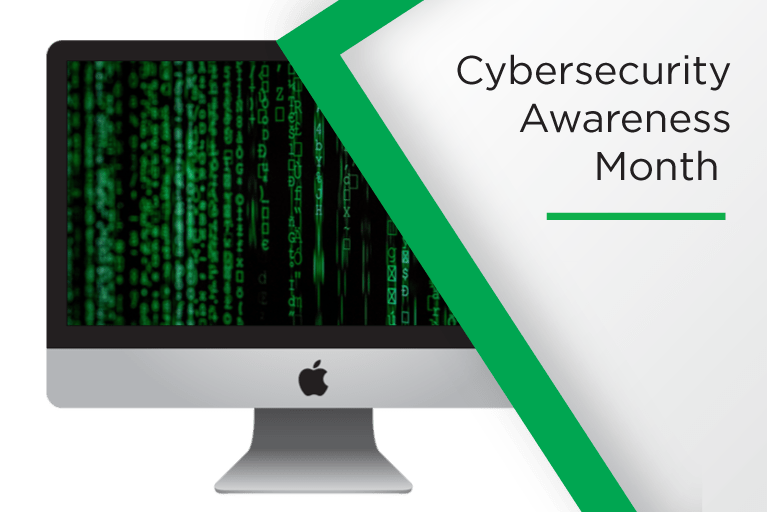October is Cybersecurity Awareness Month. Researchers at the College of Communication Arts and Sciences at Michigan State University are working on different ways to advance awareness and protection as it relates to people’s activity online.
As technologies are increasingly embedded in many aspects of our daily lives, it’s important to protect “the technologies we use from people who want to abuse, misuse or disrupt them,” said Rick Wash, associate professor in the Department of Media and Information. “Research on cybersecurity awareness helps us to come up with new and effective means to make technology safer and more reliable.”
Following are some of the centers that focus on aspects of cybersecurity.
Following are some of the ComArtSci faculty who do research on cybersecurity. Click through to their profiles to learn more about their research, awards and grants.
Johannes Bauer: Quello Chair in Media and Information Policy
Links to research:
- Using machine learning to examine cyberattack motivations on web defacement data
- An exploratory analysis of the characteristics of ideologically motivated cyberattacks
- Economics of cybersecurity
- Economics of Fighting Botnets: Lessons from a Decade of Mitigation
- Enhancing incentives for internet security
- Cybersecurity: Stakeholder incentives, externalities, and policy options
- Emerging Threats to Internet Security: Incentives, Externalities and Policy Implications
Ruth Shillair: Assistant Professor, Director of Media and Information Master's Program
Links to research:
- An exploratory analysis of the characteristics of ideologically motivated cyberattacks
- Cybersecurity capacity building: cross-national benefits and international divides
- Information Policy, Privacy Failings, and Steps Towards Empowerment in Cases of Technology-Facilitated Sexual Violence
- Online safety begins with you and me: Convincing Internet users to protect themselves
- Cybersecurity Capacity: Does It Matter?
- Multiple sources for security: seeking online safety information and their influence on coping self-efficacy and protection behavior habits
- Talking about online safety: A qualitative study exploring the cybersecurity learning process of online labor market workers
- An exploratory analysis of the characteristics of ideologically motivated cyberattacks
- Cybersecurity capacity building: cross-national benefits and international divides
- Building the Cybersecurity Capacity of Nations
- Supporting a cybersecurity mindset: getting internet users into the cat and mouse game
Rick Wash: Associate Professor, Media and Information
Links to research:
- How Non-Experts Try to Detect Phishing Scam Emails
- How Experts Detect Phishing Scam Emails
- Knowledge and Capabilities that Non-Expert Users Bring to Phishing Detection
- Prioritizing security over usability: Strategies for how people choose passwords
- Do Stories Help People Adopt Two-factor Authentication?
- Who Provides Phishing Training? Facts, Stories, and People Like Me
- Can People Self-Report Security Accurately? Agreement Between Self-Report and Behavioral Measures
- Human Interdependencies in Security Systems
- Understanding Password Choices: How Frequently Entered Passwords are Re-used Across Websites
- Identifying Patterns in Informal Sources of Security Information
- Out of the Loop: How Automated Software Updates Cause Unintended Security Consequences
- Too Much Knowledge? Security Beliefs and Protective Behaviors Among US Internet Users
- Computer Security Information in Stories, News Articles, and Education Documents
- Mental Models of Software Updates
- Betrayed By Updates: How Negative Experiences Affect Future Security
- Helping You Protect You
- Folk Security
- Stories as Informal Lessons About Security
- Influencing Mental Models of Security
- Folk Models of Home Computer Security
Emilee Rader: Associate Professor, Media and Information
Links to research:
- Knowledge and Capabilities that Non-Expert Users Bring to Phishing Detection
- Prioritizing security over usability: Strategies for how people choose passwords
- Stories as Informal Lessons About Security
- Betrayed By Updates: How Negative Experiences Affect Future Security
- Too Much Knowledge? Security Beliefs and Protective Behaviors Among US Internet Users
- Identifying Patterns in Informal Sources of Security Information
- Understanding Password Choices: How Frequently Entered Passwords are Re-used Across Websites
- Can People Self-Report Security Accurately? Agreement Between Self-Report and Behavioral Measures
- Most Americans don’t realize what companies can predict from their data
- I Have a Narrow Thought Process: Constraints on Explanations Connecting Inferences and Self-Perceptions
- Digital Privacy
